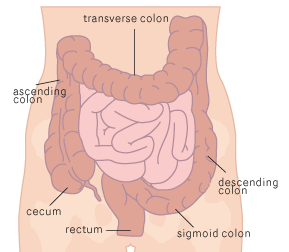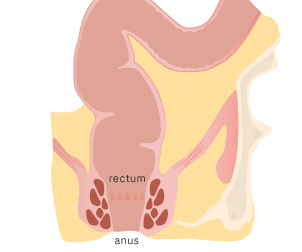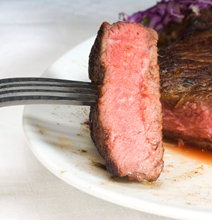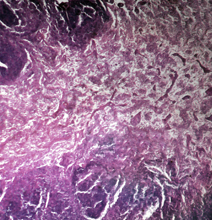Digestive system

The digestive (or gastrointestinal) system is a system of organs, which function is to process food to obtain nutrients and energy. It includes solid organs - the liver, pancreas, and gallbladder – and a digestive tract, where several hollow organs are joined in a long tube going from the mouth to the anus.
Nutrients and energy are mainly absorbed in its upper part: stomach and small intestine.
The colon and rectum are part of the large intestine, located at the lower end of the digestive system.
Colon structure (see picture)
- Ascending colon
(connected to the small intestine - runs on the abdomen’s right side) - Transverse colon
- Descending colon travels down the left side of the abdomen
- Sigmoid colon
(a short S-shaped region of the large intestine that connects the colon to the rectum)
The colon, which comprises most of the large intestine, removes water, vitamins and mineral salts from food. As the remaining unwanted food moves through this long and muscular tube, it loses water and thickens forming the feces.
The last 6 cms of the digestive tract constitute the rectum. That is where feces accumulate before being excreted through the anus.
Different parts of the colon are associated with different types of colorectal cancer

In fact, while about 72% of sporadic (non-hereditary) cancer cases appear on the left of the body, both on the descending colon and the sigmoid, hereditary syndromes (such as HNPCC or Lynch syndrome) are typically found on the ascending colon.
A hereditary syndrome is when inherited mutations predispose the individual to develop cancer. As such, several individuals of a family are typically affected.





